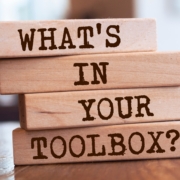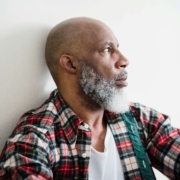DBT Skills Series 13
DBT PLEASE Skills: How Taking Care of Your Body Helps Regulate Your Emotions
Some days, emotions feel stronger — you might notice you’re more reactive or easily frustrated. In DBT, we call this being emotionally vulnerable: your body and mind are out of sync.
That’s where the PLEASE skills come in. These skills remind us that emotional balance begins with taking care of our physical needs. When your body is nourished, rested, and supported, your mind is calmer, your mood steadier, and your reactions more manageable.
What Does PLEASE Stand For?
The PLEASE skills remind us that caring for your body is part of caring for your emotions. Each letter points to a specific way we can reduce emotional vulnerability and feel more grounded day to day:
- PL — Treat PhysicaL illness, including preventive care. Taking care of your body helps you recover faster, feel stronger, and maintain emotional balance.
- E — Eat balanced meals. Regular, nourishing food supports stable energy and clearer thinking.
- A — Avoid mood-altering substances. Alcohol, drugs, or excess caffeine can throw off your emotions more than you might expect.
- S — Sleep. Getting enough rest restores both body and mind, improving focus and mood.
- E — Exercise. Moving your body releases stress and boosts natural feel-good chemicals.
Practicing PLEASE gives you a stronger foundation to handle stress, manage emotions, and stay connected to yourself and others.
PL — Physical Illness (and Health Maintenance): Take Care of What Hurts — and Prevent What Might
 Taking care of your body helps protect your emotional stability. When you’re physically healthy, you have more energy, clarity, and patience to handle life’s stressors. Untreated pain, illness, or fatigue can make emotions feel more intense and more challenging to regulate.
Taking care of your body helps protect your emotional stability. When you’re physically healthy, you have more energy, clarity, and patience to handle life’s stressors. Untreated pain, illness, or fatigue can make emotions feel more intense and more challenging to regulate.
Health maintenance is just as essential as treatment. Scheduling annual checkups can help catch minor problems before they develop into more significant ones.
Think of it as preventive maintenance for your emotional engine — you wouldn’t ignore your car’s check-engine light, and your body deserves the same care.
E — Balanced Eating: Fuel for Stability
Balanced eating fuels your body, mind, and emotions. Regular, nourishing meals help keep your blood sugar and energy steady, which supports focus and emotional balance.
When you skip meals, overuse caffeine, or rely on sugary foods for quick energy, your blood sugar levels crash and your mood dips soon after. That crash often shows up as irritability, anxiety, or fatigue.
Focus on consistency rather than perfection.
Mindfulness helps you tune in to how food affects both your body and your emotions. You might notice that when you eat regularly, your energy and patience last longer. Those small shifts can create big changes in emotional resilience.
A — Avoid Mood-Altering Substances: Protect Your Emotional Baseline
Healthy choices that support emotional stability begin with being mindful of what you put into your body. Substances like alcohol, recreational drugs, nicotine, and caffeine — as well as high-sugar or carb-heavy foods — can all influence your mood and emotional reactivity.
For many people, alcohol or drugs serve as coping tools — a short-term way to numb pain, escape distress. Still, over time, they tend to increase vulnerability and emotional reactivity.
These substances alter brain chemistry, often amplifying the very emotions people are trying to avoid — such as anxiety, shame, or sadness. As tolerance builds, it can take more and more to achieve relief, which deepens the emotional rollercoaster and erodes physical health in the process.
Even everyday choices like excess caffeine, chocolate, or sugary comfort foods can lead to mood swings. You might feel energized at first, only to crash later, leaving you foggy, tired, or irritable.
Paying attention to how your emotions shift after using any of these substances — whether it’s a drink, a latte, or a late-night snack — can help you understand your own patterns. Mindful awareness enables you to choose behaviors that truly soothe and sustain you, rather than those that temporarily distract or deplete you.
S — Sleep: The Foundation of Emotional and Physical Health
Getting enough sleep strengthens your immune system, heart, metabolism, and mood. Without it, everything from energy to emotions suffers.
 Sleep is one of the strongest predictors of emotional regulation. When you get enough rest, your brain processes emotions more clearly, your body recovers, and your mood stabilizes.
Sleep is one of the strongest predictors of emotional regulation. When you get enough rest, your brain processes emotions more clearly, your body recovers, and your mood stabilizes.
You might notice how, after a sleepless night, minor frustrations feel overwhelming or you’re more reactive in conversations. That’s not a character flaw — it’s your body signaling that it’s running on empty.
If sleep is difficult, establish an evening routine that helps your body wind down. Try shutting down bright screens a little earlier and letting your space get softer and quieter as bedtime approaches. You could read a few pages of a book, put on some music that helps you unwind, or take a few slow breaths before lying down.
For more on how sleep affects overall health, check out:
- National Institute of Health: Sleep Deprivation and Deficiency
- American Psychological Association: Why Sleep Matters
When your body rests, your emotions can also rest.
E — Exercise: Move to Regulate Mood
Movement supports both physical and emotional balance. Regular, moderate exercise helps your body release tension, reduce stress hormones, and increase endorphins — your brain’s natural mood stabilizers.
You don’t need an intense workout routine; even a few minutes of movement can reset your nervous system and lift your mood.
When you move your body, you also move your emotions. Instead of holding stress in, movement provides it with a release point. The more consistently you move, the more you notice your body letting go of tension — and the easier it becomes to ride out life’s emotional ups and downs.
Putting It All Together: Caring for the Whole System
 Emotional health thrives when the body is cared for. DBT teaches that reducing vulnerability means tending to both physical and emotional needs.
Emotional health thrives when the body is cared for. DBT teaches that reducing vulnerability means tending to both physical and emotional needs.
When your body feels balanced, your emotions don’t have to work as hard to stay that way.
Your Challenge This Week
Consider which area of the PLEASE section might require your attention. It could be as simple as catching up on sleep, scheduling that long-overdue checkup, or reducing caffeine intake. Choose one small, realistic step to start with.
When you take care of your body, you’re not just improving your health — you’re strengthening your ability to regulate emotions and respond to life from a place of balance.
Interested in Learning More?
If you’d like to learn more about DBT, EMDR, or how therapy can support your emotional health, you can explore more at Integrative Path Therapy or reach out directly through my Contact Page. You can also visit my DBT Skills Series archive to explore other skills or browse my full blog archive for more posts on therapy, emotional wellness, and healing in everyday life.







